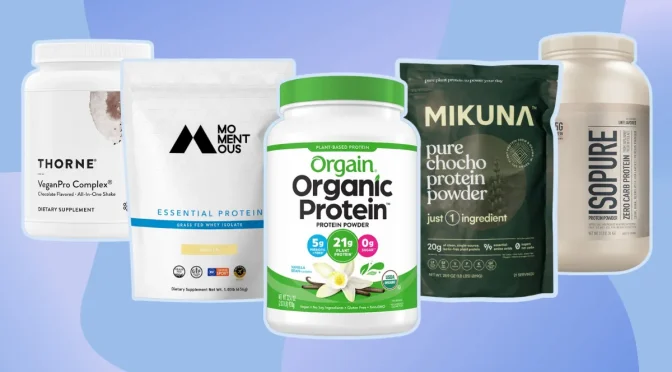With a wide array of protein powders available today,each serves unique health purposes,whether you’re aiming to build muscle,lose weight,or meet dietary needs.Here’s a breakdown of the most popular protein powders and their benefits,including options for those with dietary restrictions.
Types of Protein Powder
Protein powders generally fall into three categories:hydrolysates,concentrates,and isolates.Hydrolysates are created through the breakdown of amino acid bonds by acids and enzymes,resulting in smaller amino acid chains that are absorbed more quickly by the body.Concentrates are produced by heating and acidifying food to extract protein,containing about 60-80%protein with the remainder as fats and carbs.Isolates undergo additional filtering to remove most fats and carbs,providing a nearly pure protein product.
Whey Protein
Whey protein is the most commonly used protein powder,derived from the liquid remaining after milk curdles during cheese production.It boasts high levels of branched-chain amino acids(BCAAs),especially leucine,which promotes muscle growth and recovery.While whey protein is effective for muscle building and weight loss,it is an animal product containing lactose,making it unsuitable for vegans and those with milk allergies.
Casein Protein
Like whey,casein protein comes from milk but is digested more slowly.Casein forms a gel-like substance in the stomach,providing a gradual release of amino acids.It is particularly effective for muscle building over extended periods.However,some research suggests casein may be more beneficial than whey on a caloric deficit diet.
Egg Protein
Egg protein powders are made from egg whites,removing the yolks.They are highly efficient for muscle building due to their high leucine content,second only to whey protein.Egg protein is a suitable alternative for those with milk allergies who still want to build muscle mass.
Soy Protein
Soy protein is a popular vegan alternative that contains all nine essential amino acids.It may also offer potential cancer-reducing benefits.However,soy contains isoflavones,which can affect hormone levels.Though occasional use is generally safe,excessive consumption may warrant caution.
Hemp Protein
Hemp protein powder is another plant-based option rich in essential amino acids.It is easily digestible,making it a good choice for those with sensitive stomachs.However,hemp protein is high in fat,which might not be ideal for those focused on weight loss.
Pea Protein
Pea protein,made from yellow split peas,provides high fiber and protein content and includes all essential amino acids except one.Research indicates that pea protein can increase muscle thickness comparably to whey protein,though it is digested more slowly than whey.
Rice Protein
Rice protein powder,particularly brown rice,contains all essential amino acids but has lower lysine levels,which may affect protein synthesis.Despite this,when paired with other protein sources,rice protein is a viable option.Comparatively,rice protein and whey protein offer similar benefits in muscle strength and recovery.
Mixed Proteins
Some protein powders combine multiple sources to offer a comprehensive nutrient profile.Vegan blends might include rice,pea,hemp,chia seeds,flax seeds,quinoa,or alfalfa,often providing slow digestion.Other mixed proteins combine whey with high-carb ingredients,suitable for weight gain but potentially containing additives and artificial sweeteners.
Potential Risks
Despite their benefits,protein powders can have drawbacks.Physicians often advise using protein powders sparingly and under supervision due to the lack of long-term research on high-protein diets.Additionally,the Clean Label Project has reported that some protein powders contain contaminants linked to cancer and disease.Always check for purity and quality before choosing a brand.
Choosing the right protein powder depends on your specific goals,dietary restrictions,and preferences.By understanding the benefits and limitations of each type,you can make an informed decision to support your health and fitness objectives.
